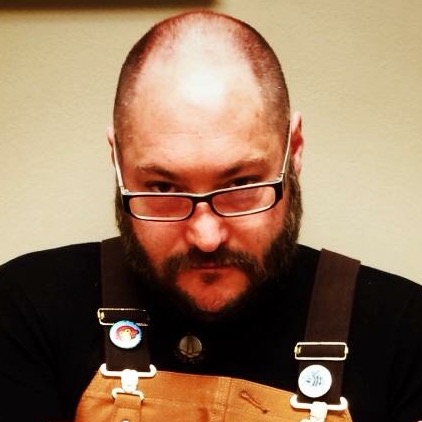Matt Naimi.
Place Lab recently hosted the third Ethical Redevelopment Salon Session, focused on Principle #3: Pedagogical Moments. At it’s core, this principle is about the myriad opportunities for knowledge transfer and shared understanding that present themselves in community practice.
Salon Member Matt Naimi recently spoke with Place Lab about this principle through the lens of his experience in Detroit with Recycle Here!, a neighborhood recycling program that also serves as a vehicle for various forms of community engagement and artistic programs.
Place Lab: What responsibilities do we have to the people and places in which we work?
Matt Naimi: When working in development and community building, it is very important to remember that the there is never a clean, blank canvas. Lives are being lived all around you. There is history that impacts perception, a web of countless memories and experiences tied to every brick, a collective attitude that changes week to week. Your core responsibility is to respect this, to allow for growth and change as knowledge is shared and trust is earned.
PL: How can we prioritize community knowledge and build on its foundation?
MN: As I stated during the answer to the previous question, each community is a living organism. More often than not, what the community wants or needs is not inline with what a developer might want to do. Forcing a square peg into this round hole is often what disrupts communities and disenfranchises citizens. By prioritizing community knowledge, the wants or needs of the community is what should guide development, and those that are entrusted to 'city-building' should utilize the mechanisms in their power (RFP's, Zoning Laws, Tax Incentives, etc.) to benefit the community first.
PL: How do we recognize and interrogate our own skills or talents? How do we unlock our work so that teaching/learning can happen?
MN: Invite criticism. Ask for help. Listen to others. Never dictate. Empower those you work with to create. Share your vision. Be flexible. Encourage participation.
PL: Moments of learning and teaching can unfold in all aspects of work and across relationships. Give us an example of when you’ve seen the paradigm of education and knowledge-sharing enhanced, disrupted, or changed.
MN: When we began the Recycle Here recycling program in Detroit, we realized that we were building a program from the ground up. Recycling becomes habit at an early age, and then this habit is kept throughout your life, passed from parent to child. We reverse engineered the process by working with 3rd and 5th grade students in the Detroit Public School system to educate the children about the recycling program and then sent them home with the knowledge and desire to recycle and the resources to give their parents on how to access the Recycle Here recycling program. Within 7 years, every DPS student had received recycling education and the recycling program had been expanded city wide.
